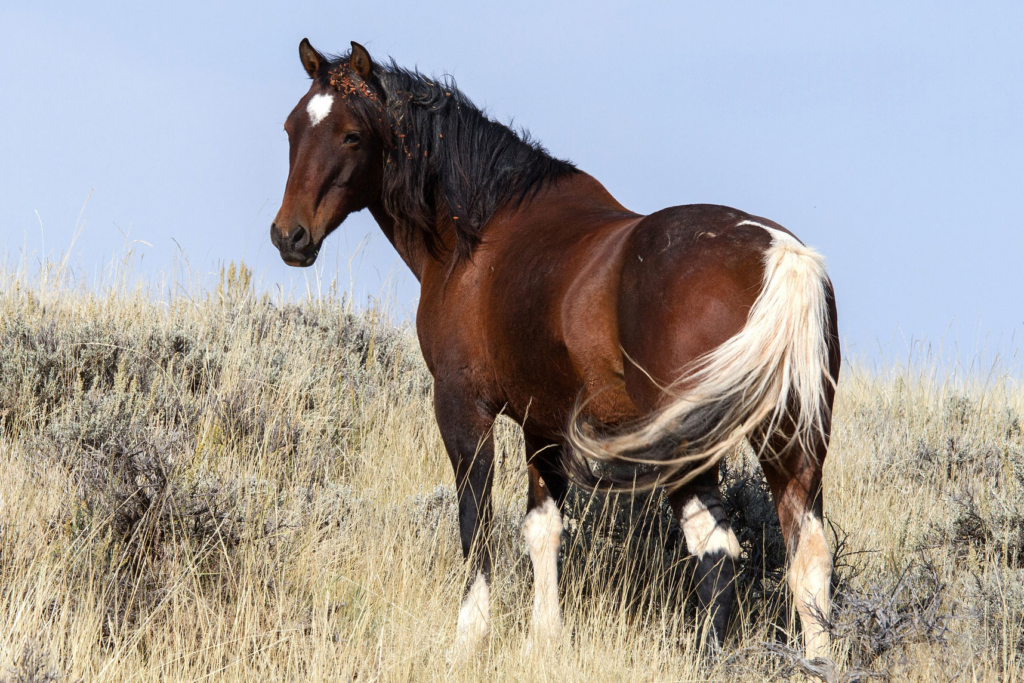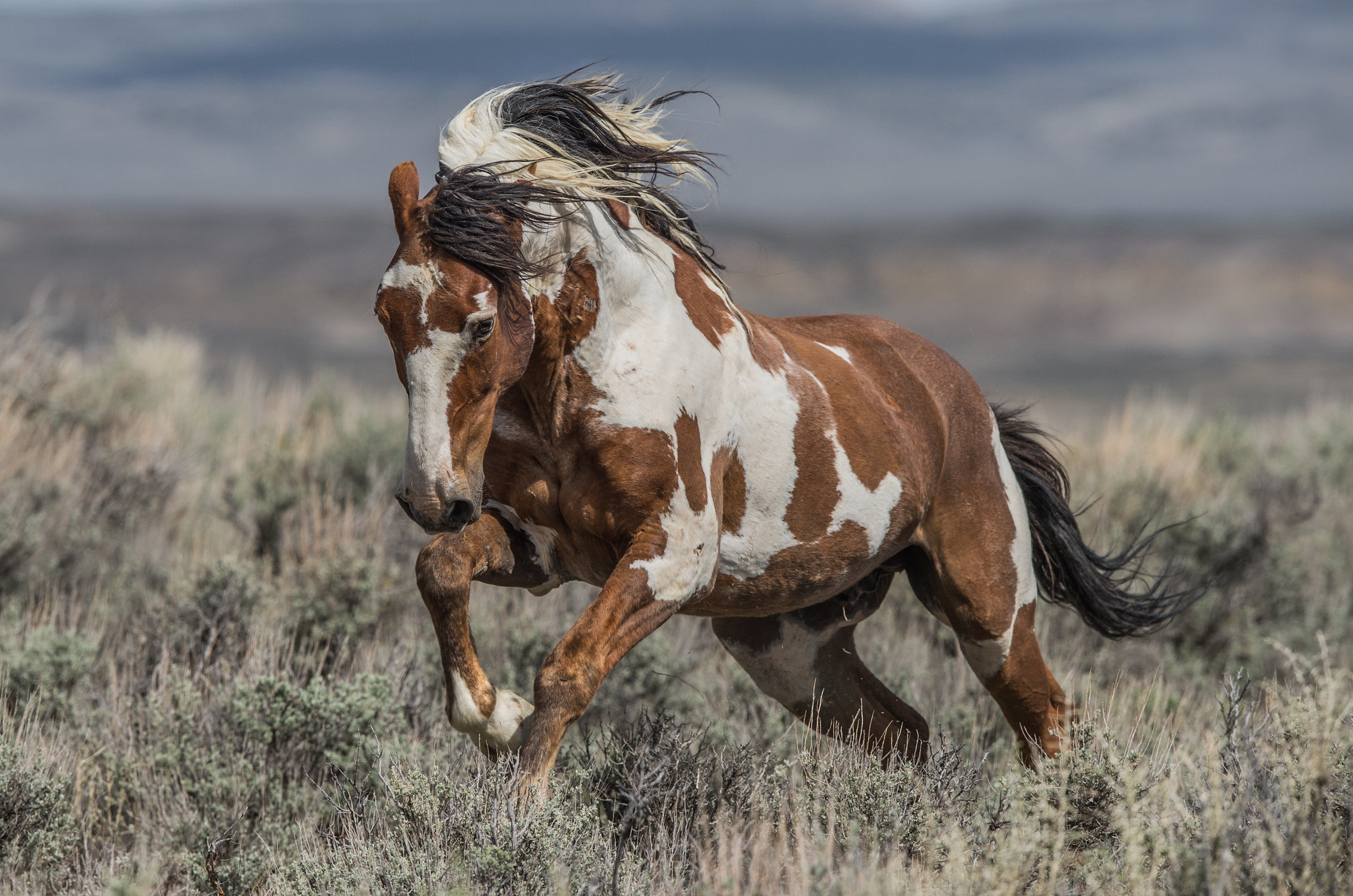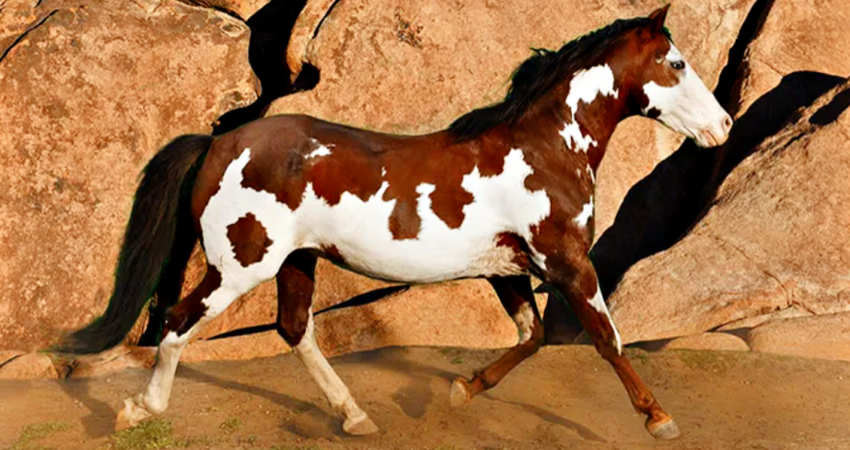Mustangs are tough horses known for their ability to survive, even in difficult conditions and on a regime of only grass and bush. Mustangs are the descendants of Iberian or Spanish horses that were induced to North, Central, and South America throughout the Colonial Era, in the 16th century. There’s nothing more legendary in America as its wild horses.

Mustangs are often credited to as wild horses, but because they are descended from what were once tamed horses, they are in fact, feral horses. Although there are wild horses that are listed as Mustangs, there is also a definite modern breed that was developed through quarter horses and draft horses. Below we are going to show you some of the amazing facts about Mustang horses so you can get to know this breed better.

1. The US Government files “wild” Mustang horses as ferals
As we mentioned in the beginning, the Mustang horse is a successor of horses that were previously domesticated and that’s why they are considered to be feral animals. This permits the government in the United States some rights over the horses to tame and sell them to new owners.


2. Many years ago, there were over 1 million Mustangs without owners in America
That’s actually one of the main reasons why the US Congress named the horses as feral. The horses would go on different farms and destroy pasture areas that were meant for cattle. Several property owners would kill the wild horses to protect their assets and preserve their livestock.

3. It is against the law to kill or capture a Mustang
In 1971, the United States established a law termed the “Wild Free-Roaming Horse and Burro Act.” This law preserves the horses from farmers and ranchers who want to protect their property, making it prohibited to catch or kill any wild horse that comes onto their property. This has directed to the population increase of horse herds in the US West, so the law also lets the Bureau of Land Management to regularly round up Mustangs, train them, and then sell them to farmers or other people who may be interested.

4. Mustangs come in a diversity of size and color
A Mustang varies from 13 hands to 16 hands. They may weigh only 700 pounds or even 1,500 pounds for the bigger stallions. Every equine color variety that is recognized is also part of the Mustang breed.

5. Mustangs have harder hooves than other tamed horses
The wild Mustang can travel long distances, even over harsh terrain, thanks to their tough hoof. Because of their unique hoof, it is a little bit difficult to trim hooves for those who own a Mustang horse. The Mustangs can adjust to various conditions and you can be sure that they won’t be experiencing an injury or health problem.

6. Male Mustangs fight with each other for breeding rights
When mating season comes, which is normally April-July, you’ll see Mustang horses fighting each other for the breeding rights. It takes 11 months of pregnancy for a foal to born. Most foals can join their herd just 1 or 2 days after they are born.

7. The majority of Mustangs can live from 15 to 20 years
Mustangs generally live as long as all the other horse breeds. Wild horses that are tamed may live longer or shorter lives and that depends mainly on the nature of the horse and its new living circumstances. These horses are very fast and enjoy running, so they do great in regions where there is sufficient space for them to exercise daily.

8. Not everyone is permitted to own a Mustang
For a person to own a Mustang that has been taken and domesticated by the United States Government, they must prove that they can properly take care of the horse. Since 2015, you can adopt a Mustang for only $125. Adoption events are organized on a regular basis whenever it has been ascertained that population levels have increased. To pass for adoption, you must be over 18 years old, have a field and stall, and an accessible stock trailer needed for transport.

9. Many Mustangs require very few foods in order to survive
Even when they have lots of food available, it might only require about 6 pounds of grass or hay every day. This breed can stand on much less food in the wild when required as well, without it negatively affecting its health. For this motive, many Mustangs are considered to be “easy to maintain” horses because of their intelligence, confidence, and need for few supplies.

